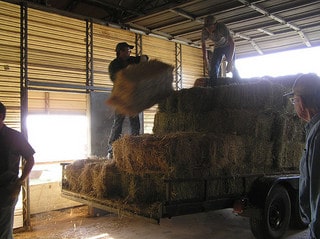If you operate a small business of any type–product or service, home-based, Main Street, on the outskirts or outside of town, new or old–you have a common bond with all other small business owners.
Your common bond is the close linkages between your family and your business.
Actions taken in one easily can affect the other for good and for bad.
Research has shown that small-business owners are highly likely to intermingle time and money.
Even if intermingling does not occur, the family becomes an integral part of the business, whether by intent or not, and can influence business success. Not only is the business influenced, but family functioning and family success typically also are influenced when a business owner resides in the household.
Often the perceived link between the family and business is the cash transfers between them. In the beginning, in many cases the cash transfers are from family to business in order to capitalize the new business. In the middle, the goal of transferring money from business to family as the business grows and prospers is what drives many business owners. In the end, a tough call because of these strong linkages is knowing when to say enough is enough. There is a tendency to hold on too long, draining family finances, or to shut the doors too early, missing opportunities for later prosperity.
Yet dollars are only one type of intermingling. Time is another resource that flows back and forth between family and business. The perception that what happens in one area does not affect the other comes from the common misunderstanding that the business and family are separate. When time is tight, both family and business tasks get reduced such as sleep or home maintenance or perhaps record keeping at work.
Given the inter-connectedness of the family and the business, business owners and family managers often ask what can be done. Understanding the influence each system can have on the other will have a major impact on making this a positive instead of a negative.
Have a conversation with all family members. Include:
- Why and how the business will fit into the existing family routines and what adjustments they might need to make.
- Identifying how the business may impact the family finances and family time is important during these early discussions. Acknowledge that changes will be necessary.
- Identify the priorities and build a plan that allows family priorities to remain in place to the extent possible. This will mean coordinating schedules so family members face no surprises.
- Look for and verbalize where and how the business can and will give for the family.
- Acknowledge that the business and family are partners. Ask other family members to help in the business, but also, as the business manager, ask how you can, in return, help with the family duties.
- Allowing the family to participate in the business and seeing you take a role in family duties will help all members develop a sense of belonging. This will encourage the support and understanding of all the members. The activities need not be large. Even small tasks can mean a lot when working as a team.
- As the business manager, do your scheduling, ensure that time is set aside for family. Remember that maintaining a sense of balance is important.
- Schedule quiet time that allows you to focus on work, not the daily routines of work but looking ahead.
Small businesses are a key economic force in our economy. Developing them and helping them succeed is key. The family plays a crucial role in that success. Open communication and involvement can foster that role.
Glenn Muske is the Rural and Agribusiness Enterprise Development Specialist at the North Dakota State University Extension Service – Center for Community Vitality. Follow Glenn on Twitter: @gmuske












Spot on Glenn! When starting a business with the family, it is vital to have open communication to address issues in a timely manner.
Agree. Need to get your family involved early on, even when you are just incubating the idea.
My sister and I grew up in and around our mother’s graphic design studio. Instead of heading home after school, we headed there, where we either played with supplies or learned to use them :-) She was busy—there were deadlines, meetings and messy projects… and we were a part of it all. Because of these experiences, I don’t have a problem imagining children and other family members as part of a business, and hope we can continue to celebrate and accommodate creative blendings of family and work priorities.
Penina, thanks for sharing your story.
Thanks for the repost and your comment.